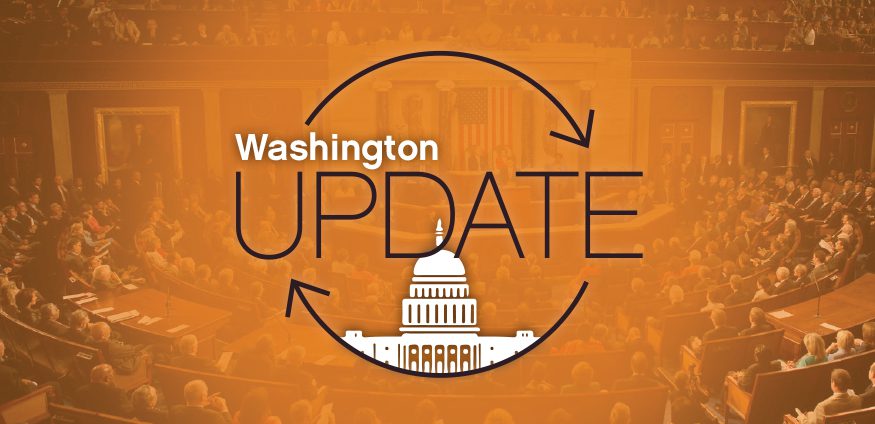Global Food Security Act/Feed the Future
- Where we stand at the moment with the bill (GFSA): Two slightly different versions of the bill have been passed by the Senate and the House, and the bill has essentially been hanging in the balance since this happened in April.
- GFSA has been scheduled to be marked up by the House Foreign Affairs Committee tomorrow. It is critical that the bill passes out of the committee with no new amendments. We do expect amendments to be offered, but the committee’s staff have been working hard to try to make sure there will not be enough support in the committee for the amendments to pass. If amendments do pass, there is a high likelihood that the bill will not pass Congress this year because the House and Senate then will still need to pass identical versions of GFSA.
- If GFSA passes out of mark-up, it may come to the House floor for a vote next week – May 23 or 24. This has not been scheduled yet.
- We have turned our attention to confirming support among members for the House floor vote.
Child Nutrition Reauthorization
We expect the House Education and Workforce committee to consider its child nutrition reauthorization bill tomorrow. As a reminder, the bill (H.R. 5003, the Improving Child Nutrition and Education Act of 2016) would reauthorize child nutrition programs while making a number of policy changes that would make it more difficult for children to access school meal programs in particular. Some specifics:
- A major harmful provision relates to community eligibility. Under current law, schools in high-poverty areas (defined as where at least 40 percent of children qualify for free school meals) have the option to serve meals to all students at no charge. The provision allows more children to participate in school meals while streamlining meal programs and reducing paperwork. This is known as the Community Eligibility Provision (CEP). H.R. 5003 would change the threshold allowing schools to participate in CEP from 40 percent to 60 percent. 7,000 schools that quality for CEP currently fall below the 60 percent threshold, so it’s estimated the change would impact about 3.4 million children in those schools. Additionally, over 11,000 schools currently qualify for CEP but would not qualify under the House proposal.
- The bill also goes further than the Senate in increasing school meal application verification requirements, which could lead to more eligible children losing access to school meals. This change would disproportionately impact vulnerable families, such as those who are homeless, migrant, immigrant or have limited English proficiency.
- Regarding summer meals, while the bill does include some funding for summer electronic benefits transfer (EBT), it’s capped at $10 million per year and is limited to 8 states. The current appropriations process has funded summer EBT demonstrations at $16 to $23 million a year.
Bread, along with our faith and secular partners, is opposing the bill as written and encouraging the committee to make improvements. We expect to send an action alert targeting congressional districts with members on the Education and Workforce Committee.
See Bread’s statement on the bill. We have also signed on to a faith coalition letter that was sent to the committee last week as well as a broader community letter that is being sent this week.
- This week brings the most action so far this year on appropriations in both chambers. There will be committee markups (both sub and full committee) for the Senate Agriculture appropriations bill. No word yet on exact funding, but we expect to see flat funding for Food for Peace and at least some funding for the local and regional purchase program, unlike in the House. We also expect domestic programs, like WIC, to receive level funding.
- We also expect to see consideration of emergency funding to combat the Zika virus. The Senate plans to vote on three amendments to the Transportation-HUD spending bill that would provide either $1.1 billion or $1.9 billion in emergency spending. House Republican leaders plan to drop a stand-alone Zika bill which would provide $662 million in spending, with offsets, and would fund a Zika response only for the next four months.
- House Republican leadership isn’t planning to bring its budget to the floor this week, judging from the schedule, even after negotiators added $23 billion in cuts over 10 years to the Supplemental Nutrition Assistance Program to their fiscal 2017 budget plan (H. Con. Res. 125) last week.
- Congress continues to make significant progress on criminal justice reform legislation. S. 2123, The Sentencing Reform and Corrections Act (SRCA), now has 34 cosponsors, including 15 Republicans.
- In response to several Senate critics, key sponsors of the bill released a revised version of the bill. It made several concessions to members who argued that the bill would potentially reduce penalties for people with serious or violent criminal records. The new bill also includes a mandatory enhancement for a common additive to heroin called Fentanyl.
- In an effort to pressure Sen. Mitch McConnell, the Majority Leader, Bread joined over 40 of its faith partners in sending him a letter urging an immediate vote on the bill.
Act Now!
Help us urge Congress to support programs that feed children in the U.S. and around the world. Join us in Washington, D.C., Tuesday, June 7, for Bread for the World’s annual Lobby Day. Register now!



